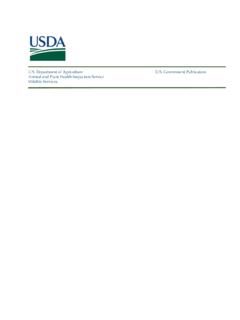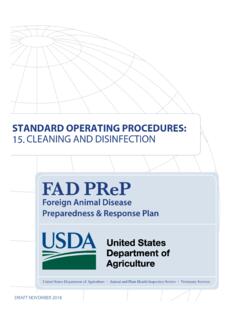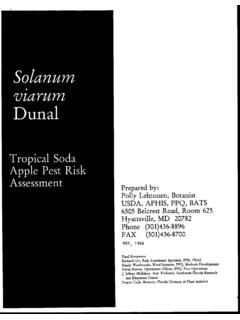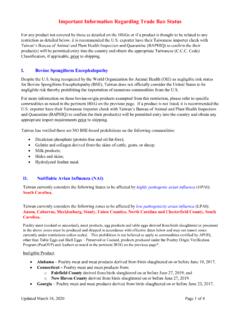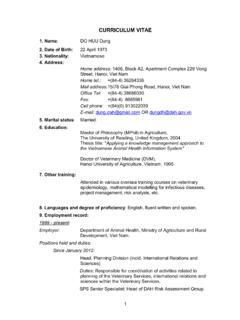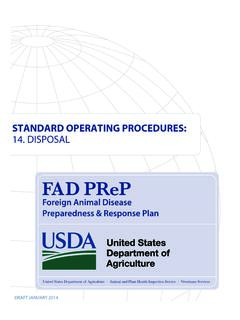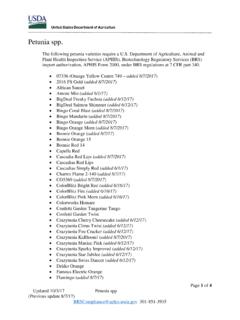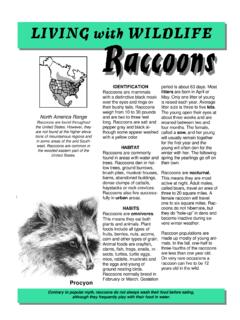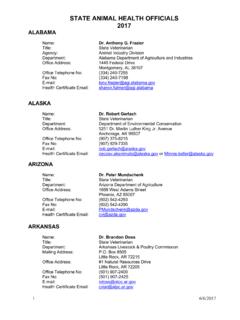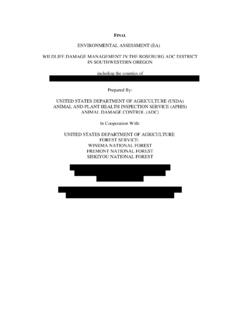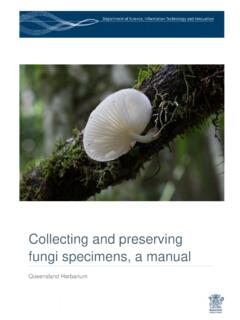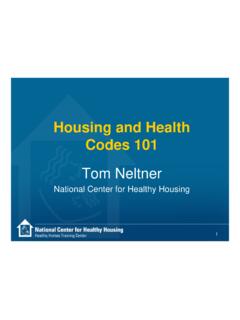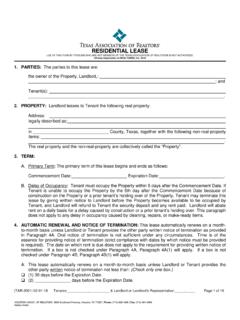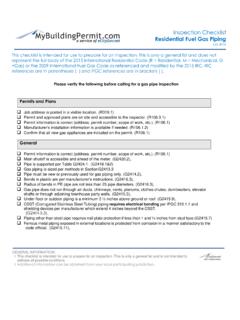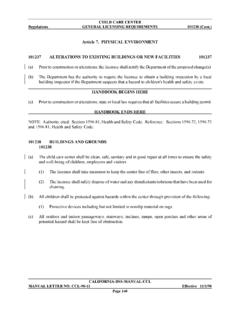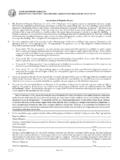Transcription of USDA APHIS | Dog Breeder Resource Guide
1 Dog Breeder Resource Guide usda Animal Care March 2019 Table of Contents March 2019 Publications The Animal Welfare Act November 2012 Compliance Inspections February 2012 Activities with Dogs Requiring a usda License/Registration - November 2018 Importing Live Dogs into the United States January 2018 Daily Observation - December 2017 Incentives for Identifying, Reporting, Correcting, and Preventing Noncompliance with the AWA - May 2018 Inspection Report Appeals Process - June 2017 Puppy Socialization September 2013 Temperature and Humidity in Dog Kennels April 2013 Using Cage Cards to Identify Puppies and Kittens March 2015 Brucellosis and Dog Kennels August 2016 Animal Care Aids: Canine Periodontal Disease Monitoring Periodontal Disease in Dogs Preventative Care for Periodontal Disease in Dogs Coat Care.
2 Preventing Matted Hair Tools Canine Care Checklist January 2017 Minimum Space Requirements for Dogs May 2014 Minimum Age Requirements for Transporting Dogs and Cats January 2017 Copy of APHIS form 7005 Copy of APHIS for 7006 Sample Copy of Completed APHIS forms 7005 and 7005 Sample of 7005 Inventory Sample of 7006 Donation Sample of 7006 Sale to Individual- Buyer Picks Up Sample of 7006 Sale Broker or Wholesaler- Shipped by IH or Carrier Sample of 7006 Sale to Individual- Shipped by Carrier Animal Welfare Act Animal Welfare Regulations United States Department of AgricultureAnimal and Plant Health Inspection ServiceAnimal The Law The AWA requires that basic standards of care and treatment be provided for certain animals bred and sold for use as pets, used in biomedical research, transported commercially, or exhibited to the public.
3 Individuals who operate facilities in these categories must provide their animals with adequate care and treatment in the areas of housing, handling, sanitation, nutrition, water, veterinary care, and protection from extreme weather and temperatures. Although Federal requirements establish basic standards, regulated businesses are encouraged to exceed these ExemptionsThe AWA regulates the care and treatment of warmblooded animals, except those (such as farm animals) that are used for food, fiber, or other agricultural purposes. Currently, coldblooded animals, such as snakes and alligators, are exempt from coverage under the Act. Animal shelters and pounds are regulated if they sell dogs or cats to dealers or research facilities.
4 Pets owned by private citizens are not Pet ProtectionTo help prevent trade in lost or stolen animals, regulated businesses are required to keep accurate records of acquisition and disposition and a description of the animals that come into their possession. Animal dealers and exhibitors also must hold the animals that they acquire from a pound or shelter for a period of 5 to 10 days to verify their origin and allow pet owners an opportunity to locate a missing Animal FightingThe AWA prohibits staged dogfights, bear or raccoon baiting, cockfighting, and similar animal fighting Licensing and RegistrationThe AWA requires that all individuals or businesses dealing with animals covered under the law must be licensed or registered with Research FacilitiesRegulated research facilities include hospitals, colleges and universities, diagnostic laboratories.
5 And many private firms in the pharmaceutical and biotechnology industries. In addition to providing basic standards of veterinary care and animal husbandry, regulated research facilities must provide dogs with the opportunity for exercise and promote the psychological well-being of nonhuman primates used in laboratories. Researchers must use methods to avoid or minimize discomfort, distress, and pain to the regulated animals unless withholding such methods is scientifically justified. The AWA also forbids the unnecessary duplication of previous experiments using regulated animals. Research facilities must establish an Institutional Animal Care and Use Committee to oversee the use of animals in experiments.
6 This committee is responsible for ensuring that the facility remains in compliance with the AWA and for providing documentation of all areas of compliance to APHIS . The committee must be composed of at least three members, including one veterinarian and one person who is not affiliated with the facility in any AWA does not permit APHIS to interrupt the conduct of actual research or experimentation. The Animal Welfare ActFor nearly 50 years, the Department of Agriculture ( usda ) has enforced the Animal Welfare Act (AWA) to protect certain animals from inhumane treatment and neglect. Congress passed the AWA in 1966 and strengthened the law through amendments in 1970, 1976, 1985, 1990, 2002, 2007, and 2008.
7 The usda s Animal and Plant Health Inspection Service ( APHIS ) administers the AWA, its standards, and its regulations.[continued, reverse side]FactsheetNovember 2012 The Department of Agriculture ( usda ) prohibits discrimination in all its programs and activities on the basis of race, color, national origin, gender, religion, age, disability, political beliefs, sexual orientation, or marital or family status. (Not all prohibited bases apply to all programs.) Persons with disabilities who require alternative means for communication of program information (Braille, large print, audiotape, etc.) should contact usda s TARGET Center at (202) 720 2600 (voice and TDD).
8 To file a complaint of discrimination, write usda , Director, Office of Civil Rights, Room 326 W, Whitten Building, 1400 Independence Avenue, , Washington, 20250 9410 or call (202) 720 5964 (voice and TDD). usda is an equal opportunity provider and AWA EnforcementAPHIS ensures that all regulated commercial animal breeders, dealers, brokers, transportation companies, exhibitors, and research facilities are licensed or registered. APHIS also searches for unlicensed or unregistered APHIS will issue a license, the applicant must be in compliance with all standards and regulations under the AWA. To ensure that all licensed and registered facilities continue to comply with the Act, APHIS inspectors regularly make unannounced an inspection reveals deficiencies in meeting the AWA standards and regulations, the inspector documents the deficiencies and instructs the facility to correct the problems within a given timeframe.
9 If deficiencies remain uncorrected at subsequent inspections, APHIS considers legal also reviews and investigates alleged violations. Some cases are resolved with Official Notices of Warning or agency stipulation letters, which set civil penalties for the infractions. Civil penalties include cease-and-desist orders, fines, and license suspensions or revocations. If APHIS officials determine that an alleged AWA violation warrants additional action, APHIS submits all evidence to usda s Office of the General Counsel for further legal CooperationIn addition to conducting regular inspections, APHIS will perform inspections in response to public input about the conditions of regulated facilities.
10 Concerned individuals are also encouraged to inform APHIS about facilities that should be licensed or registered. Many State and local governments have passed additional animal welfare legislation. The public is encouraged to work with Federal, State, and local officials as well as local humane organizations to help eliminate inhumane treatment of Additional Information For more information about the Animal Welfare Act, contact:Animal Care, APHIS -USDA4700 River Road, Unit 84 Riverdale, MD 20737-1234 Telephone: (301) 851-3751 Fax: (301) 734-4978 Email: page: States Department of AgricultureAnimal and Plant Health Inspection CareFactsheetUnited States Department of AgricultureAnimal 2012Q AWA EnforcementAPHIS Animal Care program enforces the AWA primarily through inspections of regulated facilities.
